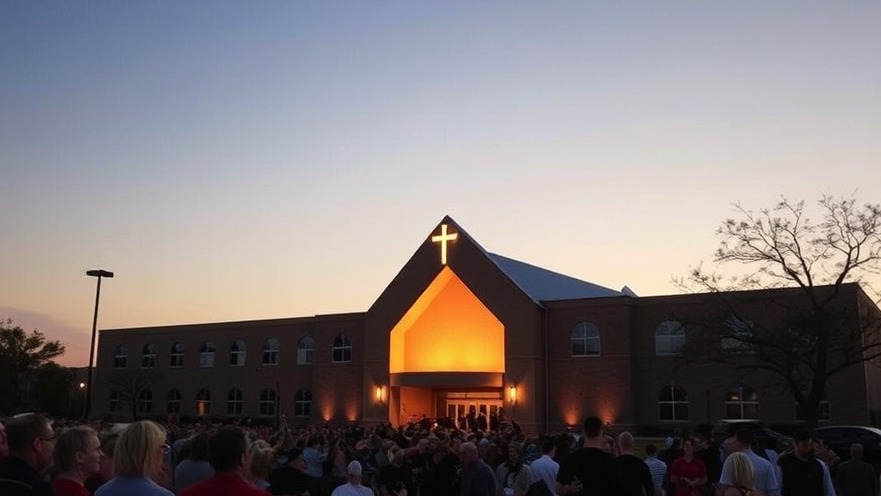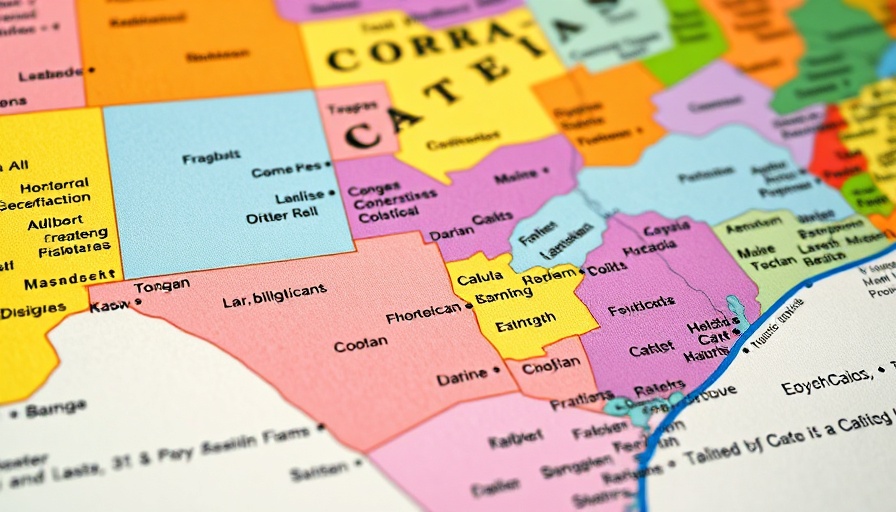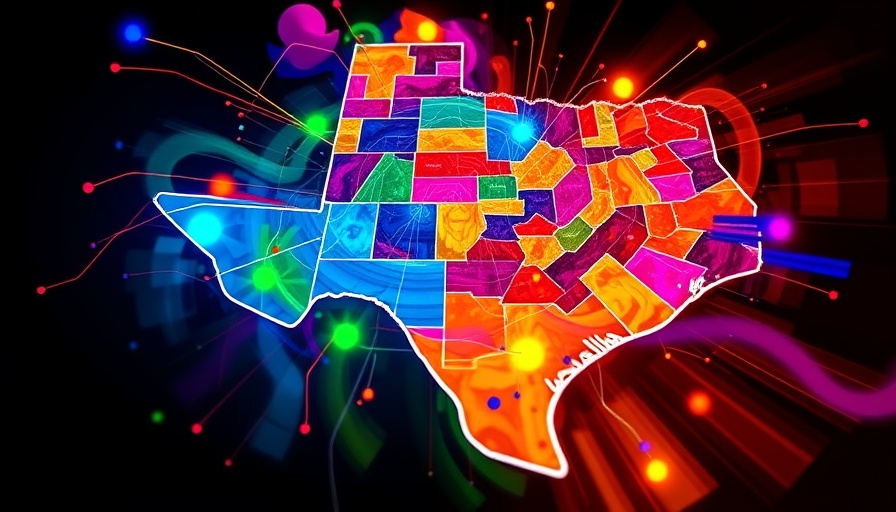
The Shift in IRS Regulations and Its Impact on Texas Churches
This summer, the landscape of political engagement in Texas shifted dramatically with a policy change announced by the Internal Revenue Service (IRS), permitting churches to endorse political candidates. This decision has sent ripples across the state, where over 200 megachurches play a significant role in community and political discourse. The implications of this move are profound, especially in a state known for its vibrant mix of faith and politics.
Amplifying Pastoral Voices in the Public Sphere
Among those eagerly embracing this change is Texas Representative Nate Schatzline, who serves not only as a lawmaker but also as a pastor at Mercy Culture Church in Fort Worth. At a recent gathering of conservatives, he vocalized a sentiment shared by many in the religious community: the need for pastors to occupy a larger role in public discussions about political candidates. 'There is absolutely no reason that a politician should be more vocal about social issues than your pastor,' Schatzline declared. This reflects a growing expectation among congregants that their spiritual leaders will speak boldly on national issues, particularly those tied to conservative values.
The Historical Context: The Johnson Amendment
This recent IRS decision marks a historic change from the Johnson Amendment, instituted in 1954. This law, which prohibited tax-exempt organizations, including churches, from engaging in political campaigning, has long been a point of contention among religious leaders advocating for their right to influence public policy from a moral standpoint. The lifting of this restriction may signal a new era where churches are more directly involved in shaping Texas politics, effectively encouraging congregations to direct their support toward candidates who align with their values.
A Testing Ground in Texas
As political scholars observe, Texas is poised to become the epicenter of this new movement. According to Ryan Burge, a political and religious expert, the state's unique socio-political climate means that the actions of its churches will be closely watched and potentially emulated elsewhere in the nation. 'Texas will be the epicenter for testing all these ideas out,' he explained, suggesting that how Texas churches respond could set a precedent for religious institutions across the United States.
Examining the Potential Consequences
While there is excitement among some religious leaders about this newfound freedom, there are cautions to consider. Critics caution that the intertwining of religion and politics could dilute the spiritual mission of the church, turning places of worship into outright political platforms. There is also the risk of alienating congregants who may not share the same political views, potentially fragmenting communities that have traditionally been united by faith.
Future Political Engagement and Community Mobilization
Beyond just endorsing candidates, churches may take on roles that encourage civic engagement through voter registration drives and discussions on current events. Schatzline’s church is already involved in collaborating with political organizations, indicating a larger trend where faith communities actively participate in local and national elections. For congregants, this may reinforce the notion that their spiritual leaders provide guidance not only in moral or personal decisions but also in civic responsibility.
Implications for Upcoming Elections
With major elections on the horizon in 2025, including Texas governor and state legislature positions, the impact of this shift will be felt soon. Pastors like Schatzline are mobilizing their congregations to discuss candidates who reflect their vision for Texas, emphasizing the responsibility of religious communities to engage politically. As such, the blending of faith and politics may redefine strategy as religious endorsements could sway voter opinions in significant ways.
Concluding Thoughts: The Role of Faith in Politics
The IRS's recent decision opens the door for Texans to explore the relationship between faith and political engagement more deeply. As clergy move to endorse candidates, both the faithful and the political landscape in Texas may see notable changes, raising essential questions about civic duties, moral responsibilities, and the essence of community engagement. With the faith community now potentially wielding greater power in elections, the conversation about the role of churches and ethics in governance continues to evolve.
 Add Element
Add Element  Add Row
Add Row 



Write A Comment